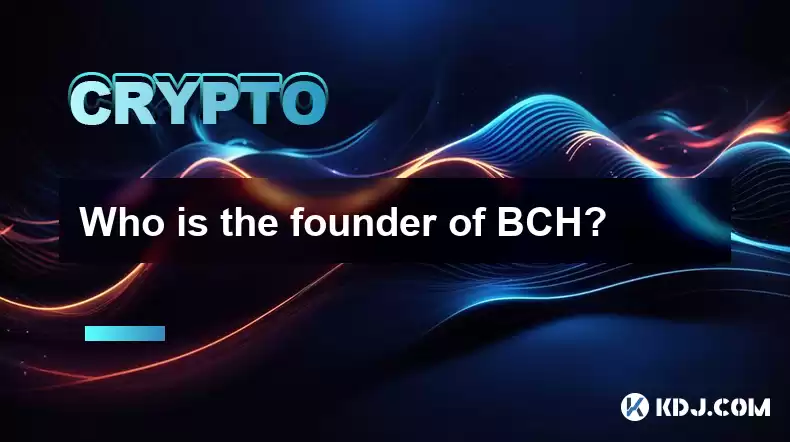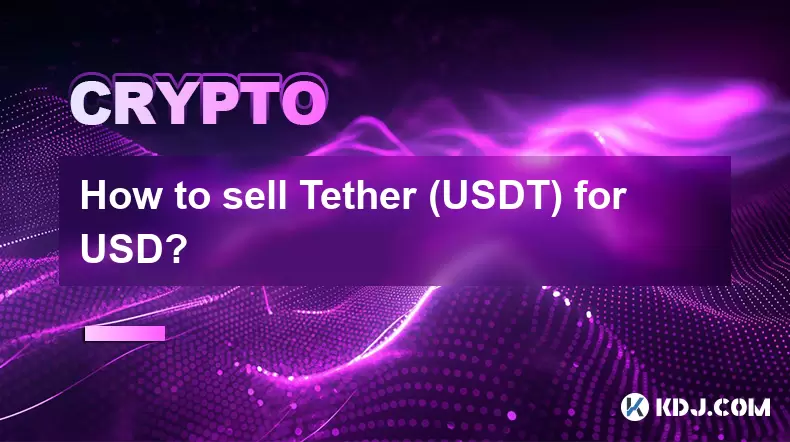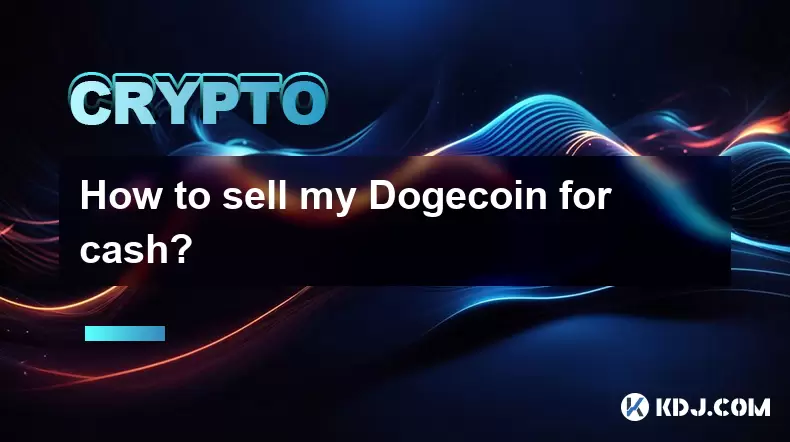-
 Bitcoin
Bitcoin $115100
1.27% -
 Ethereum
Ethereum $3675
2.71% -
 XRP
XRP $2.995
1.45% -
 Tether USDt
Tether USDt $1.000
0.02% -
 BNB
BNB $769.8
2.64% -
 Solana
Solana $168.0
3.25% -
 USDC
USDC $0.9999
-0.01% -
 TRON
TRON $0.3371
1.48% -
 Dogecoin
Dogecoin $0.2051
3.36% -
 Cardano
Cardano $0.7394
2.30% -
 Hyperliquid
Hyperliquid $38.15
0.42% -
 Stellar
Stellar $0.3966
-0.36% -
 Sui
Sui $3.486
2.93% -
 Chainlink
Chainlink $16.72
2.52% -
 Bitcoin Cash
Bitcoin Cash $568.0
4.36% -
 Hedera
Hedera $0.2440
2.59% -
 Ethena USDe
Ethena USDe $1.001
0.04% -
 Avalanche
Avalanche $22.16
2.06% -
 Litecoin
Litecoin $119.1
-0.73% -
 UNUS SED LEO
UNUS SED LEO $8.991
0.04% -
 Toncoin
Toncoin $3.232
-0.39% -
 Shiba Inu
Shiba Inu $0.00001233
2.82% -
 Uniswap
Uniswap $9.717
2.53% -
 Polkadot
Polkadot $3.664
1.85% -
 Dai
Dai $1.000
0.01% -
 Monero
Monero $281.2
-3.89% -
 Bitget Token
Bitget Token $4.350
1.55% -
 Cronos
Cronos $0.1428
5.07% -
 Pepe
Pepe $0.00001050
3.68% -
 Aave
Aave $262.3
3.54%
Who is the founder of BCH?
Bitcoin Cash (BCH) lacks a single founder; it arose from a community-driven hard fork of Bitcoin, with key figures like Roger Ver and Jihan Wu playing significant, yet distinct, roles in its development and advocacy.
Mar 17, 2025 at 03:15 pm

Key Points:
- Bitcoin Cash (BCH) doesn't have a single founder in the traditional sense. Its creation stemmed from a hard fork of Bitcoin (BTC), a decision made by a significant portion of the Bitcoin community.
- Key figures instrumental in the BCH hard fork and its subsequent development include Roger Ver, Jihan Wu, and several other developers and miners. Their roles varied, encompassing advocacy, technological contributions, and mining support.
- The decentralized nature of Bitcoin Cash makes attributing its creation to a single individual problematic. The community's consensus and collaborative efforts played a crucial role in its inception and ongoing evolution.
- Understanding the history of the Bitcoin Cash hard fork is essential to grasping the complexities surrounding its origins.
Who is the founder of BCH? This question is not straightforwardly answerable. Unlike companies with a single CEO or founder, Bitcoin Cash (BCH) emerged from a contentious hard fork of Bitcoin (BTC) in August 2017. This means it wasn't created by a single person but resulted from a community decision and the actions of several key players.
The hard fork itself was driven by disagreements within the Bitcoin community regarding block size limitations. Proponents of larger block sizes, aiming for increased transaction throughput and lower fees, initiated the split, leading to the creation of Bitcoin Cash. These individuals weren't necessarily aiming to "found" a new cryptocurrency but rather to improve Bitcoin's scalability.
Roger Ver, a prominent Bitcoin early adopter and advocate, played a significant role in promoting and supporting the Bitcoin Cash hard fork. He's often associated with BCH, but calling him the "founder" would be an oversimplification. His contributions were largely in advocacy and community building, rather than direct technological development.
Jihan Wu, the co-founder of Bitmain, a major Bitcoin mining company, also played a crucial role. Bitmain's substantial mining power significantly influenced the success of the BCH hard fork. Their support ensured the new chain had enough computational power to maintain its security and viability. However, their involvement was primarily in providing mining infrastructure, not in creating the underlying technology.
Numerous other developers contributed significantly to the technological aspects of the BCH hard fork and its subsequent development. These developers worked on adapting and improving the Bitcoin codebase to accommodate the larger block size and other proposed changes. Their collective efforts were essential to the successful launch and ongoing maintenance of BCH.
It's crucial to remember that the Bitcoin Cash network is decentralized. Unlike centralized projects with a clear leader, BCH's development and direction are influenced by a distributed community of developers, miners, and users. This decentralized nature makes assigning credit to a single founder impossible.
The narrative of BCH's creation is complex and multifaceted, involving a confluence of technological disagreements, community activism, and economic incentives. It was a collaborative effort driven by the desire for a more scalable and efficient version of Bitcoin, rather than a singular vision from a single individual.
The lack of a single founder also impacts the governance structure of BCH. Unlike companies with a hierarchical structure, BCH's development and future are shaped by community consensus and the contributions of various participants.
This collaborative nature is both a strength and a weakness. While it fosters innovation and decentralization, it can also lead to internal disagreements and challenges in decision-making. The ongoing development of BCH reflects this dynamic, constantly evolving based on community input and technological advancements.
The hard fork itself was a significant event in the history of cryptocurrency, highlighting the inherent tension between decentralization and scalability. The creation of BCH represented a specific solution to the scalability challenges faced by Bitcoin, a solution that continues to be debated and refined within the cryptocurrency community.
The process of creating BCH was not a top-down approach. It involved extensive discussions, technical contributions, and community mobilization. Understanding this multifaceted process is crucial for understanding the nature of BCH and its place in the broader cryptocurrency ecosystem. The absence of a single founder reflects the collaborative and decentralized spirit that characterizes much of the cryptocurrency world.
The evolution of Bitcoin Cash continues to be influenced by its community and developers. New proposals, updates, and improvements are regularly discussed and implemented, reflecting the ongoing nature of this decentralized project.
Frequently Asked Questions:
Q: Is Roger Ver the sole founder of Bitcoin Cash?
A: No. While Roger Ver was a prominent advocate and supporter of the Bitcoin Cash hard fork, he wasn't the sole founder. Its creation was a community effort involving developers, miners, and users.
Q: Did Jihan Wu create Bitcoin Cash?
A: No. Jihan Wu, through Bitmain, provided significant mining support crucial to the success of the BCH hard fork. However, he wasn't the creator of the underlying technology.
Q: Who controls Bitcoin Cash?
A: No single entity controls Bitcoin Cash. It's a decentralized cryptocurrency governed by its community of developers, miners, and users. Decisions are made through community consensus and collaborative development efforts.
Q: Was the Bitcoin Cash hard fork a planned event with a single architect?
A: The Bitcoin Cash hard fork wasn't a planned event orchestrated by a single individual. It resulted from disagreements within the Bitcoin community about scaling solutions, leading to a community-driven split.
Disclaimer:info@kdj.com
The information provided is not trading advice. kdj.com does not assume any responsibility for any investments made based on the information provided in this article. Cryptocurrencies are highly volatile and it is highly recommended that you invest with caution after thorough research!
If you believe that the content used on this website infringes your copyright, please contact us immediately (info@kdj.com) and we will delete it promptly.
- HashFlare Founders Face the Music: Jail Time Looms?
- 2025-08-07 14:30:12
- Toshi on Binance.US: A Memecoin's Big Break
- 2025-08-07 14:30:12
- Bitcoin, SPAC Mergers, and Parataxis: A New Yorker's Take on Crypto's Wall Street Moment
- 2025-08-07 14:50:27
- Bitcoin, Collateral, and Loan Strategies: A New York Minute on the Future of Finance
- 2025-08-07 14:50:27
- Ethereum's Bullish Surge: Reclaiming Crypto Leadership, a New York Minute
- 2025-08-07 14:55:12
- BlockDAG, Litecoin, and Cardano: Charting the Course in Crypto's Dynamic Waters
- 2025-08-07 09:09:06
Related knowledge

How to sell Tether (USDT) for USD?
Aug 07,2025 at 03:29pm
Understanding Tether (USDT) and Its USD ValueTether (USDT) is a stablecoin designed to maintain a 1:1 value ratio with the United States Dollar (USD)....

How to sell my Bitcoincoin for cash?
Aug 07,2025 at 02:14pm
Understanding the Basics of Selling Dogecoin for CashSelling Dogecoin for cash involves converting your DOGE tokens into a fiat currency such as USD, ...

What is Chainlink (LINK)?
Jul 22,2025 at 02:14am
Understanding Chainlink (LINK): The Decentralized Oracle NetworkChainlink is a decentralized oracle network designed to bridge the gap between blockch...

What is Avalanche (AVAX)?
Jul 22,2025 at 08:35am
What is Avalanche (AVAX)?Avalanche (AVAX) is a decentralized, open-source blockchain platform designed to support high-performance decentralized appli...

What is Polkadot (DOT)?
Jul 19,2025 at 06:35pm
Understanding the Basics of Polkadot (DOT)Polkadot (DOT) is a multi-chain network protocol designed to enable different blockchains to transfer messag...

What is Litecoin (LTC)?
Jul 23,2025 at 11:35am
Overview of Litecoin (LTC)Litecoin (LTC) is a peer-to-peer cryptocurrency that was created in 2011 by Charlie Lee, a former Google engineer. It is oft...

How to sell Tether (USDT) for USD?
Aug 07,2025 at 03:29pm
Understanding Tether (USDT) and Its USD ValueTether (USDT) is a stablecoin designed to maintain a 1:1 value ratio with the United States Dollar (USD)....

How to sell my Bitcoincoin for cash?
Aug 07,2025 at 02:14pm
Understanding the Basics of Selling Dogecoin for CashSelling Dogecoin for cash involves converting your DOGE tokens into a fiat currency such as USD, ...

What is Chainlink (LINK)?
Jul 22,2025 at 02:14am
Understanding Chainlink (LINK): The Decentralized Oracle NetworkChainlink is a decentralized oracle network designed to bridge the gap between blockch...

What is Avalanche (AVAX)?
Jul 22,2025 at 08:35am
What is Avalanche (AVAX)?Avalanche (AVAX) is a decentralized, open-source blockchain platform designed to support high-performance decentralized appli...

What is Polkadot (DOT)?
Jul 19,2025 at 06:35pm
Understanding the Basics of Polkadot (DOT)Polkadot (DOT) is a multi-chain network protocol designed to enable different blockchains to transfer messag...

What is Litecoin (LTC)?
Jul 23,2025 at 11:35am
Overview of Litecoin (LTC)Litecoin (LTC) is a peer-to-peer cryptocurrency that was created in 2011 by Charlie Lee, a former Google engineer. It is oft...
See all articles

























































































